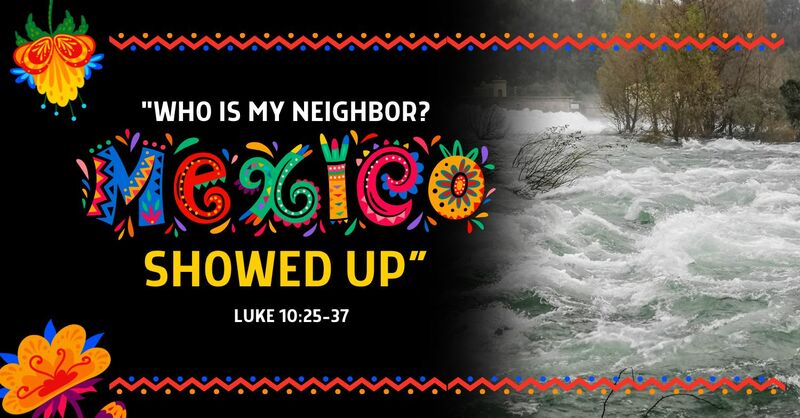
Today’s reflection centers on the parable of the Good Samaritan and its urgent relevance in our current world. The road to Jericho, once a literal and treacherous path, now stands as a metaphor for the dangerous and divisive roads we travel in society. The story challenges us to consider the lengths people will go to avoid involvement with those who are suffering, and how often those who are expected to help—religious leaders, politicians, or the privileged—are the very ones who pass by on the other side.
We are reminded that mercy is not about religious status or belief systems, but about action and shared humanity. The Samaritan, the outsider, is the one who stops, risks, and cares. In our context, the “Samaritans” are often those whom society labels as threats or burdens—immigrants, refugees, the marginalized. Yet, it is these very people who often demonstrate the compassion and courage that reflect the heart of God.
The reflection also confronts the dangers of prosperity gospel teachings, which exploit the vulnerable for personal gain, and the rise of Christian nationalism, which distorts the gospel into a tool for exclusion and cruelty. We are called to reject these distortions and instead embody the radical mercy of Christ, especially in a time when cruelty is becoming normalized and even celebrated.
Personal stories and current events—such as the Mexican rescue workers who crossed borders to help in times of disaster, only to be met with hostility—illustrate what it means to “go and do likewise.” Mercy is not about recognition or reward, but about seeing the pain of others and responding with presence and sacrifice. The call is to be neighbors, not just in sentiment but in concrete action: to speak up, to show up, to protect the vulnerable, and to let compassion guide our choices, even when it is inconvenient or risky.
The hope for the future is not found in the absence of injustice, but in the presence of people who still believe in mercy. The charge is clear: the road to Jericho is still before us, and the invitation remains—to be the neighbor, to cross the lines others draw, and to let mercy have the final word.
Key Takeaways
- Mercy Requires Crossing Boundaries
True compassion often demands that we cross uncomfortable boundaries—social, political, or personal—to meet the needs of those who are suffering. The Good Samaritan did not let cultural or religious divisions prevent him from acting; he saw a wounded human and responded with costly mercy. In our world, this means refusing to let fear or convenience dictate our willingness to help, even when it means risking misunderstanding or criticism. [00:54]
- Beware of Exploitative Religion
There is a real danger in religious systems or leaders who exploit the vulnerable, promising blessings in exchange for personal gain. The prosperity gospel is a modern example, preying on the desperate and turning faith into a transaction. Authentic faith is not measured by what we can extract from others, but by how we serve and uplift those in need, especially when it costs us something. [03:28]
- Shared Humanity Overcomes Hostility
Acts of mercy often come from unexpected places and people, especially those whom society has marginalized or maligned. The story of Mexican rescue workers and immigrant teenagers risking themselves to save others, despite being unwelcome, reveals that shared humanity transcends borders and prejudice. When we act out of compassion rather than for recognition, we embody the very heart of the gospel. [10:44]
- Dehumanization is a Spiritual Crisis
The normalization of cruelty—whether through policy, rhetoric, or entertainment—signals a deep spiritual crisis. When we allow people to be treated as less than human, we betray the core of our faith and our own humanity. The call is to resist dehumanizing language and actions, to hold leaders accountable, and to remember that every person bears the image of God, regardless of status or origin. [19:36]
- Hope is Found in Persistent Mercy
Even in the face of injustice and fear, hope endures through the persistent acts of mercy by ordinary people. The legacy of a community is not in its perfection, but in its willingness to show up, speak up, and serve. We are charged to “go and do likewise”—to let mercy, not cruelty, define our lives and our communities, trusting that compassion always matters, even when the world says otherwise. [24:08]
YouTube Chapters
[00:00] - Welcome
[00:54] - The Road to Jericho: A Treacherous Path
[01:46] - The Lawyer’s Question and Jesus’ Response
[02:21] - Modern Parallels: Who is Our Neighbor?
[03:28] - The Danger of Prosperity Gospel
[05:52] - Who Really Stops to Help?
[06:18] - The Value of Presence and Pastoral Care
[08:47] - Hidden Hurts in Our Community
[09:37] - The Samaritan: Mercy Over Status
[10:44] - Acts of Mercy Across Borders
[12:34] - Mercy, Not Belief Systems
[13:37] - Dehumanization and Cruelty in Policy
[15:50] - Personal Impact and Ethnic Targeting
[18:57] - Accountability and Dehumanization as Entertainment
[19:36] - Christian Nationalism vs. Gospel Compassion
[21:27] - Mercy in the Face of Malice
[22:24] - The Church’s Legacy of Compassion
[24:08] - The Charge: Go and Do Likewise
[24:50] - Everyday Neighborliness
[26:09] - Closing Prayer


